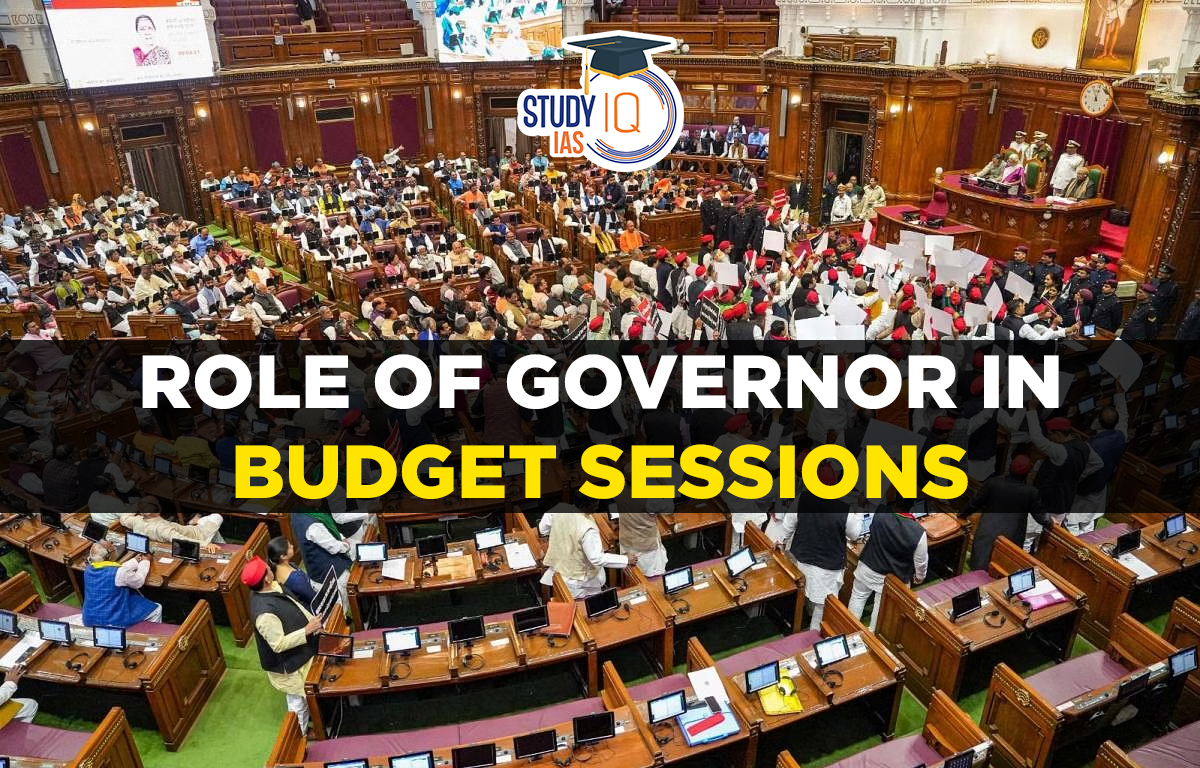Table of Contents
Context: Recently, the Punjab governor refused to summon the budget session of state.
Governor Power to Refuse Summoning the Assembly
- Punjab Governor has cited Article 167 of the Constitution, which relates to the duties of the Chief Minister in furnishing information to the Governor.
- Article 167: It shall be the duty of the Chief Minister of each state to communicate to the Governor of the state all decisions of the Council of Ministers relating to the administration of the affairs of the state and proposals for legislation.
- If the Governor so requires, to submit for the consideration of the Council of Ministers any matter on which a decision has been taken by a Minister but which has not been considered by the Council.
- There are a few instances when the Governor can act independently on summoning the House.
- When the chief minister has lost the support of the House and his strength is debatable, then the Governor need not wait for the advice of the council of ministers to hold a floor test.

Constitutional Position on Governor’s Role
- Article 163: Governor shall exercise her or his functions with the aid and advice of the council of ministers.
- It also adds that she or he would not need their advice if the Constitution requires her or him to carry out any function at her/his discretion.
- Article 174: Governor shall summon the House at a time and place, as she or he thinks fit.
- Article 174 (2) (a): Governor may from “time to time” prorogue the House.
- Article 174 (2) (b): It allows Governor to dissolve the Legislative Assembly.
- Article 175: It provides for the right of the Governor to address and send messages to the House
- Article 176: Governor has to address the house at the commencement of the first session after each general election to the Legislative Assembly and at the commencement of the first session of each year.
- By reading Article 163 and Article 174 together, governor is bound by the aid and advice of the council of ministers.
Supreme Court on Governor’s Role
- Nabam Rebia and Bamang Felix vs Deputy Speaker, or the Arunachal Pradesh Assembly case, 2016: Supreme Court said that Governor can summon, prorogue and dissolve the House only on the aid and advice of the Council of Ministers with the Chief Minister as the head and not at his own will.
- Shamsher Singh & Anr vs State Of Punjab (1974): Supreme Court said that the President and Governor shall exercise their formal constitutional powers only upon and in accordance with the advice of their Ministers save in a few well-known exceptional situations.
- Mahabir Prasad v. Prafulla Chandra 1969: The governor’s pleasure under article 164(1) is subject to Article 164(2). Thus, the withdrawal of the governor’s pleasure must coincide with the withdrawal of support to the ministry by the assembly.

Recommendation for Reforming Governor’s Role in India
- National Commission to Review the Working of the Constitution: Governor of a State should be appointed by the President, after consultation with the Chief Minister of that State.
- Sarkaria Commission: It would not be desirable to appoint a Governor who is a member of the ruling party at the Centre, in a State where an Opposition party is governing.
- It said that the Governor appointee should be a detached outsider and a person of eminence in some walks of life.
- M.M Punchhi Commission: Provision for impeachment of the Governor by the state legislature.
About Governor
- Governor is the head of the executive branch of a state government in India and is appointed by the President of India.
- Constitution of India provides for the office of Governor in Article 153, which states that there shall be a Governor for each state.
- Governor is appointed in general for a term of five years and is eligible for re-appointment.


 How African Reserves Eliminated Rhino Po...
How African Reserves Eliminated Rhino Po...
 Why India Needs Its Own Economic Model?
Why India Needs Its Own Economic Model?
 Challenges in India’s Airline Sector: ...
Challenges in India’s Airline Sector: ...

























